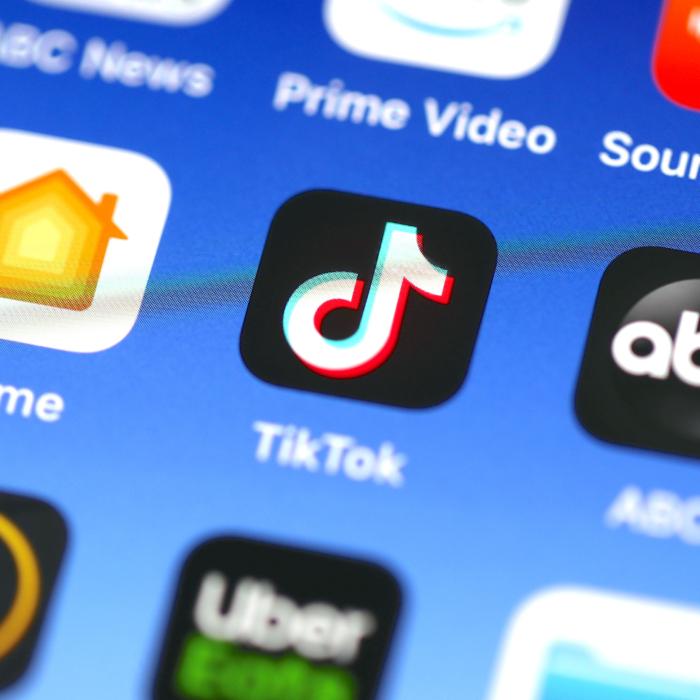A four-hour drive home in November 2020 was harrowing for the Schotts.
They had just learned that their 18-year-old daughter, Annalee, had taken her own life at the family farm in Colorado.
Everything seemed fine when they FaceTimed her that morning to let her know they’d be home from visiting family in Texas at about 11 p.m. Now, they wanted to be with her instantly but still had four hours to go.
“It was the longest, most hellacious drive we’ve ever done,” Lori Schott told The Epoch Times. “It was just like a horrible dream.”
“I was in the car for hours, trying to process this. I remember I told my son: ‘It’s not true. She’s in the barn. She’s with animals. This can’t be true. She couldn’t have done that.’”
For months, Ms. Lori Schott wondered why her daughter chose to end her own life and what she could have done as a mother so things might have turned out differently.
After 1 1/2 years, she finally found the strength to browse Ms. Annalee Schott’s journals. On a page titled “TikTok,” her daughter wrote, “Technically if I kill myself, the problem would be gone.” Ms. Lori Schott believed that the page contained quotes from the app.
A few months later, Ms. Lori Schott hired a company to break into her daughter’s phone.
The mother then found the answer: “I can open her TikTok page, and I would feel the same way.” Even two years after Ms. Annalee Schott’s passing, her TikTok feed was still saturated with depression-related and suicide-suggestive content.
TikTok has specific policies against content that may lead to self-harm or suicide.
But, when one of Annalle’s friends came home from college and visited Ms. Schott in 2022, she revealed to Ms. Schott that both she and Annalee had watched a live-streamed suicide on TikTok. They decided to delete the app afterward, only to download it again about a week later.

Annalee Schott with her horse Roxy at her family farm in Merino, Colo., on Sept. 13, 2020. (Courtesy of Lori Schott)
“TikTok just took over her brain of who she thought she was,” Ms. Lori Schott said. “To me, it figured out who she was and what her weaknesses were, and it fed on that.
“Those constant feeds to her on TikTok are still to this day—anxiety, depression, ‘you have no future.’
“And that’s wrong.”
Ms. Annalee Schott also had accounts on other social media platforms: Facebook, Instagram, and Snapchat. But in terms of content, “TikTok was absolutely the worst,” her mother said.
Concerns about the hugely popular Chinese-owned video app have been bubbling for years. Besides its effects on young people’s mental health, lawmakers, security officials, and experts have sounded the alarm that the app’s data can be accessed by Beijing and that the communist regime could use the app to run influence campaigns and spread disinformation.
In mid-March, the House overwhelmingly passed a bill that would force the app’s Chinese parent company to divest it or face a ban in the United States. A revised version of the measure was included in a $95 billion foreign aid package approved by the House on April 20.
The Senate is poised to pass the measure this week. President Joe Biden has said he would sign it into law.
Harmful Content
Beijing-based tech firm ByteDance introduced its short-video platform Douyin in 2016 and its international version, TikTok, a year later.
Its users have grown exponentially. More than 150 million Americans, nearly half the country’s population, now use the app. About half of those users are younger than 30. TikTok, headquartered in Los Angeles and Singapore, is a wholly owned subsidiary of ByteDance.
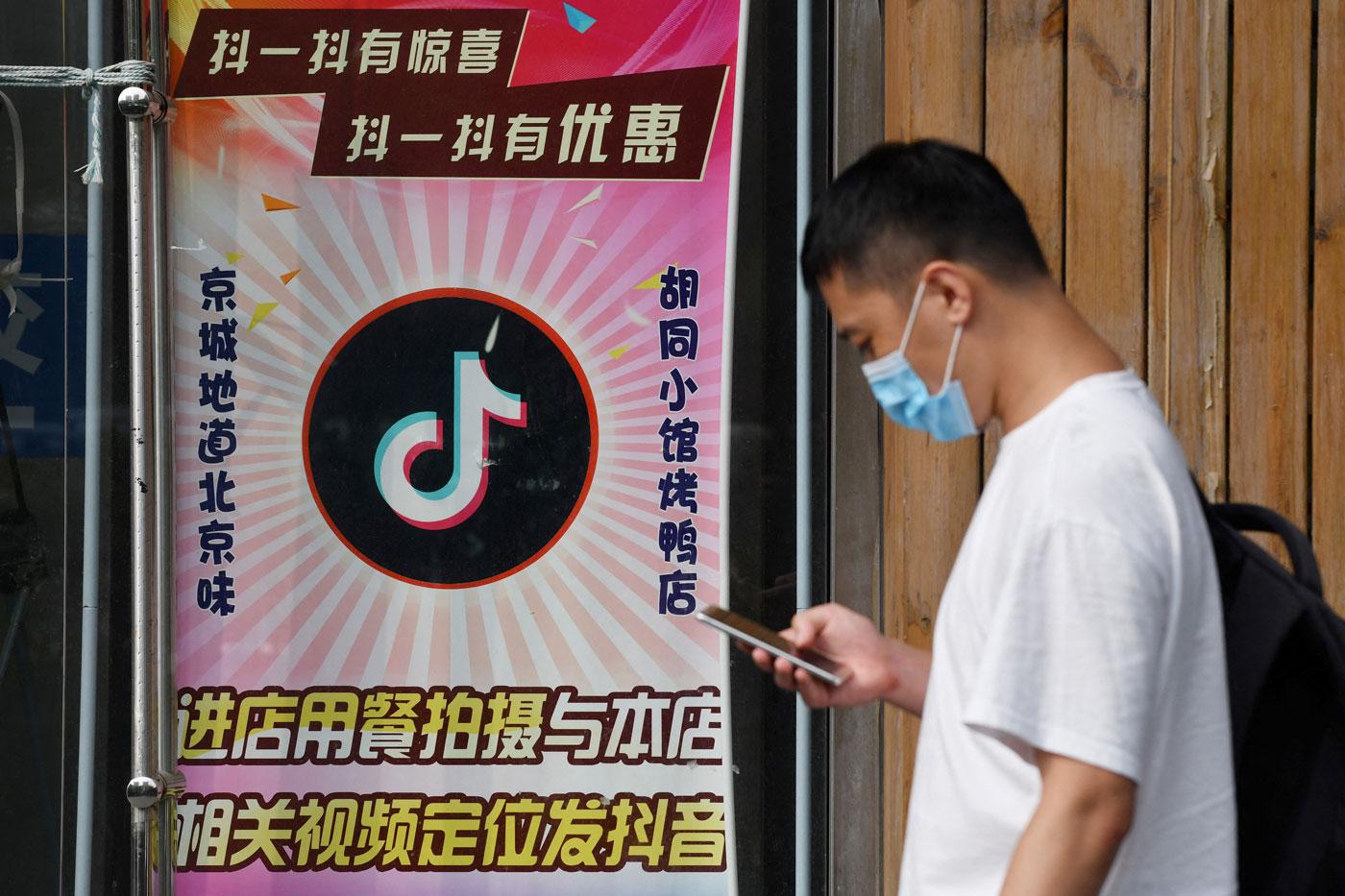
A man walks past a restaurant with a TikTok logo displayed in the window in Beijing on Sept. 14, 2020. (Greg Baker/AFP via Getty Images)
Geoffrey Cain, a journalist and technologist, said the mental health of Generation Z in the United States is suffering, and a great deal of that stems from an addiction to TikTok.
By comparing the content exposure of a fake 13-year-old with parental control settings across various social media platforms, his research discovered that such users had the easiest access to harmful content on TikTok.
However, his team’s tests showed that the same harmful content available to 13-year-old American TikTok users isn’t accessible by 13-year-olds who use Douyin, China’s version. Instead, Chinese users see a Ministry of Public Security warning of inappropriateness when they try to view the same videos.
“So, clearly, the Chinese government knows that this is extremely harmful content,” Mr. Cain told The Epoch Times. “Considering that they essentially control ByteDance, why do they allow TikTok to show this in America, whereas, in China, this same material is all banned?
“They know that it has a horrible effect on kids, yet they’re okay with it being shown here.”
An Algorithm ‘Like a Magician’
Ms. Lori Schott had thought TikTok was all about cute animals and dance videos. She had no idea what Ms. Annalee Schott was actually seeing on the app.
“It’s like sending her into a horrible store that has no warning, and you think it’s like a candy store,” she said. “You go inside, and it’s dark and despairing. I think these kids get so down they start connecting, or those algorithms start feeding on that.”
Tristan Harris, a technology ethicist who cofounded the Center for Humane Technology, a nonprofit that works to expose harmful technology, calls this “amplifaganda,“ a portmanteau of ”amplify“ and ”propaganda.”
It’s the “ability to selectively amplify and influence people’s attitudes by focusing their attention on the things that you want them to focus on, like a magician,” Mr. Harris said.
At a Senate hearing earlier this year, FBI Director Christopher Wray affirmed that ByteDance owns TikTok’s algorithm and that the only way the algorithm could work is if ByteDance also has access to the data collected by TikTok.
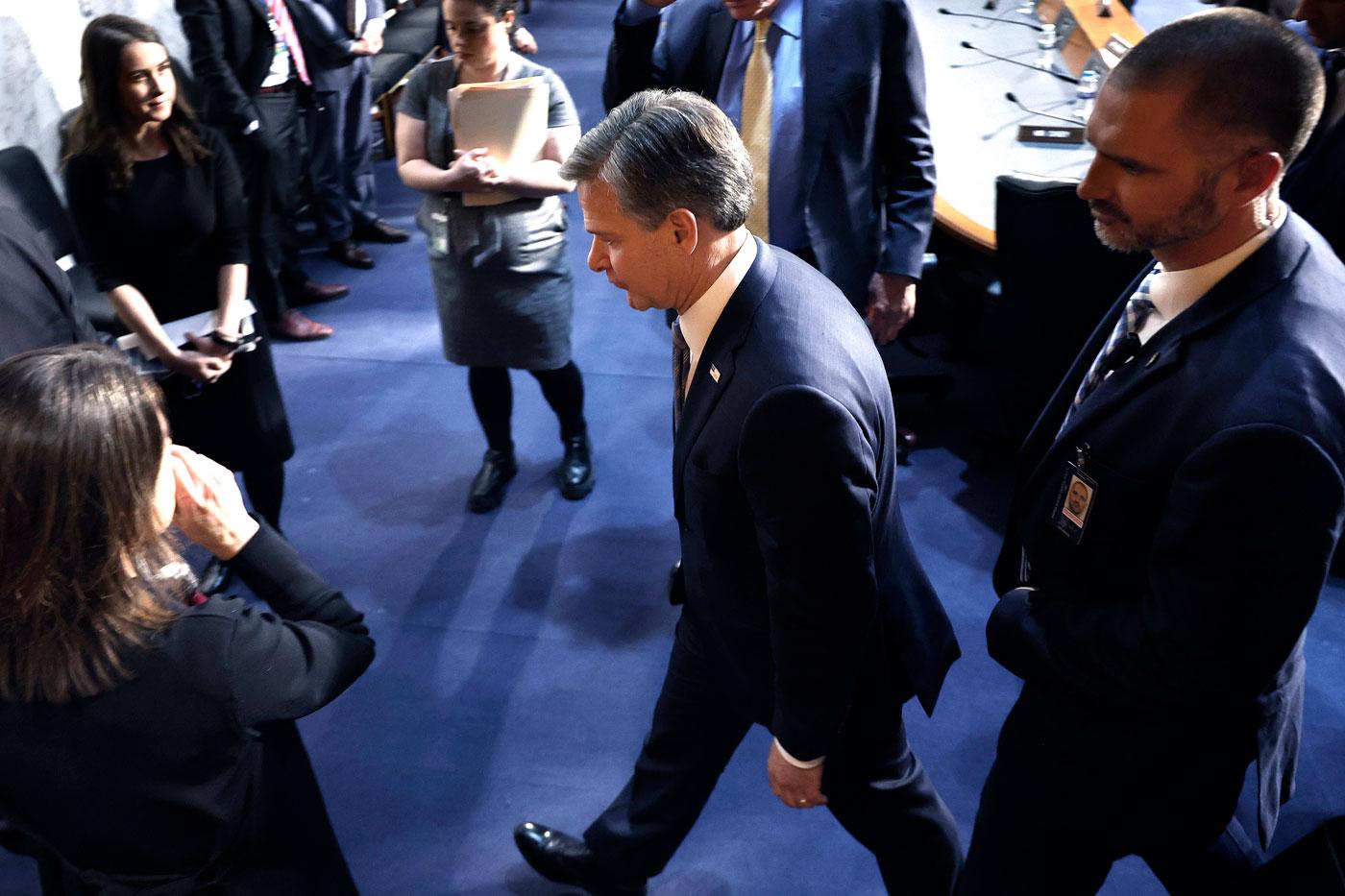
FBI Director Christopher Wray (C) heads into a closed briefing at the U.S. Capitol on March 11, 2024. (Chip Somodevilla/Getty Images)
TikTok has repeatedly maintained that it is independent from its Chinese parent company. According to TikTok, its U.S. customer data are stored in Virginia and backed up in Singapore, and it has never, and will never, share its U.S. data with the Chinese regime.
However, leaked audio of internal TikTok meetings held in September 2021 mentioned a Beijing-based engineer as a “Master Admin” with access to all data, according to a BuzzFeed report. A recent article in Fortune said that a senior data scientist at TikTok reported to a ByteDance executive in Beijing in 2022.
At the Senate hearing, Sen. Marco Rubio (R-Fla.), vice chair of the committee, asked the FBI director whether ByteDance had to comply if the Chinese Communist Party (CCP) wanted it to “put out videos that make Americans fight with each other or spread conspiracy theories and get them at each other’s throat.”
Mr. Wray confirmed that it would be the case, adding that “that kind of influence operation, or the different kinds of influence operations you’re describing, are extraordinarily difficult to detect, which is part of what makes the national security concerns represented by TikTok so significant.”
In a podcast discussion with Mr. Harris, Aza Raskin, entrepreneur and Center for Humane Technology’s other cofounder, said TikTok is a “cultural infrastructure” that can influence American culture.
In addition to employing an algorithm under the CCP’s control, data security on the app has also been a major concern because of the regime’s grip over Chinese companies. According to China’s Counterespionage Law, ByteDance must legally hand over its American user data if authorities request it.
“Data is what powers the TikTok algorithm, which is then used to manipulate our thinking,” Mr. Raskin said.
The Epoch Times has contacted TikTok for comment.
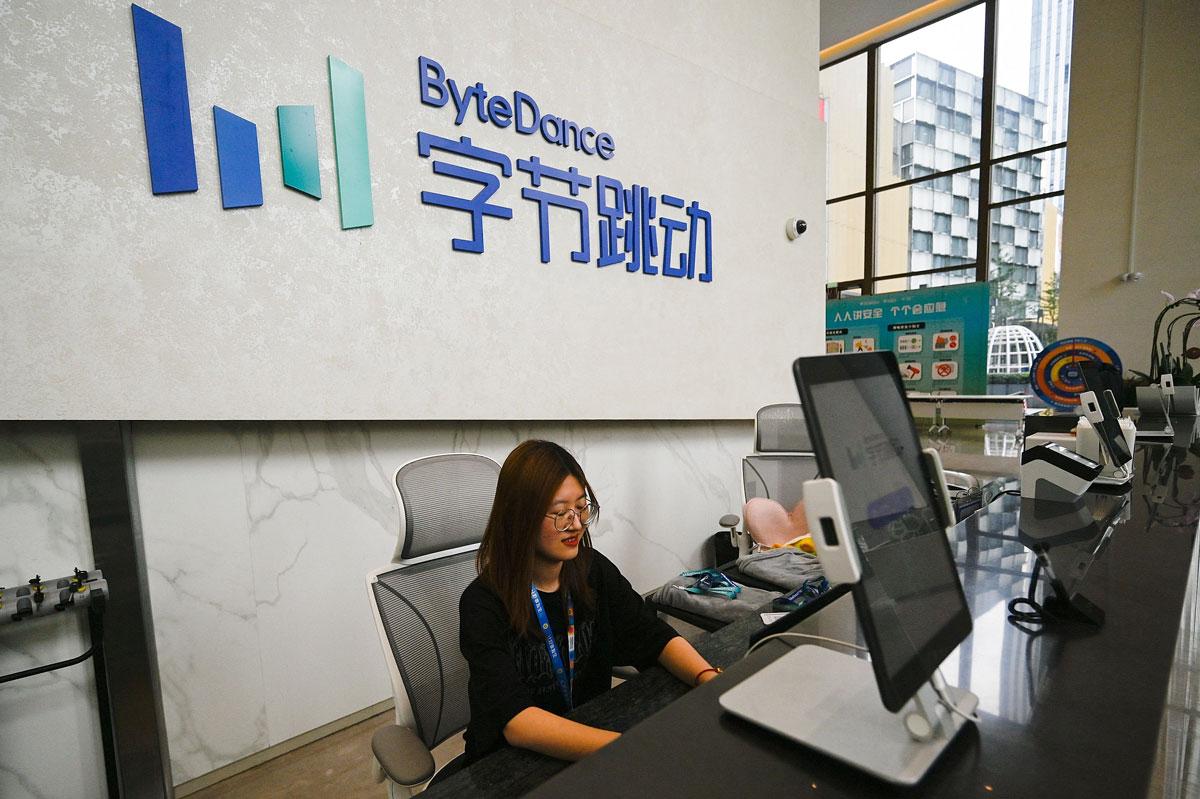
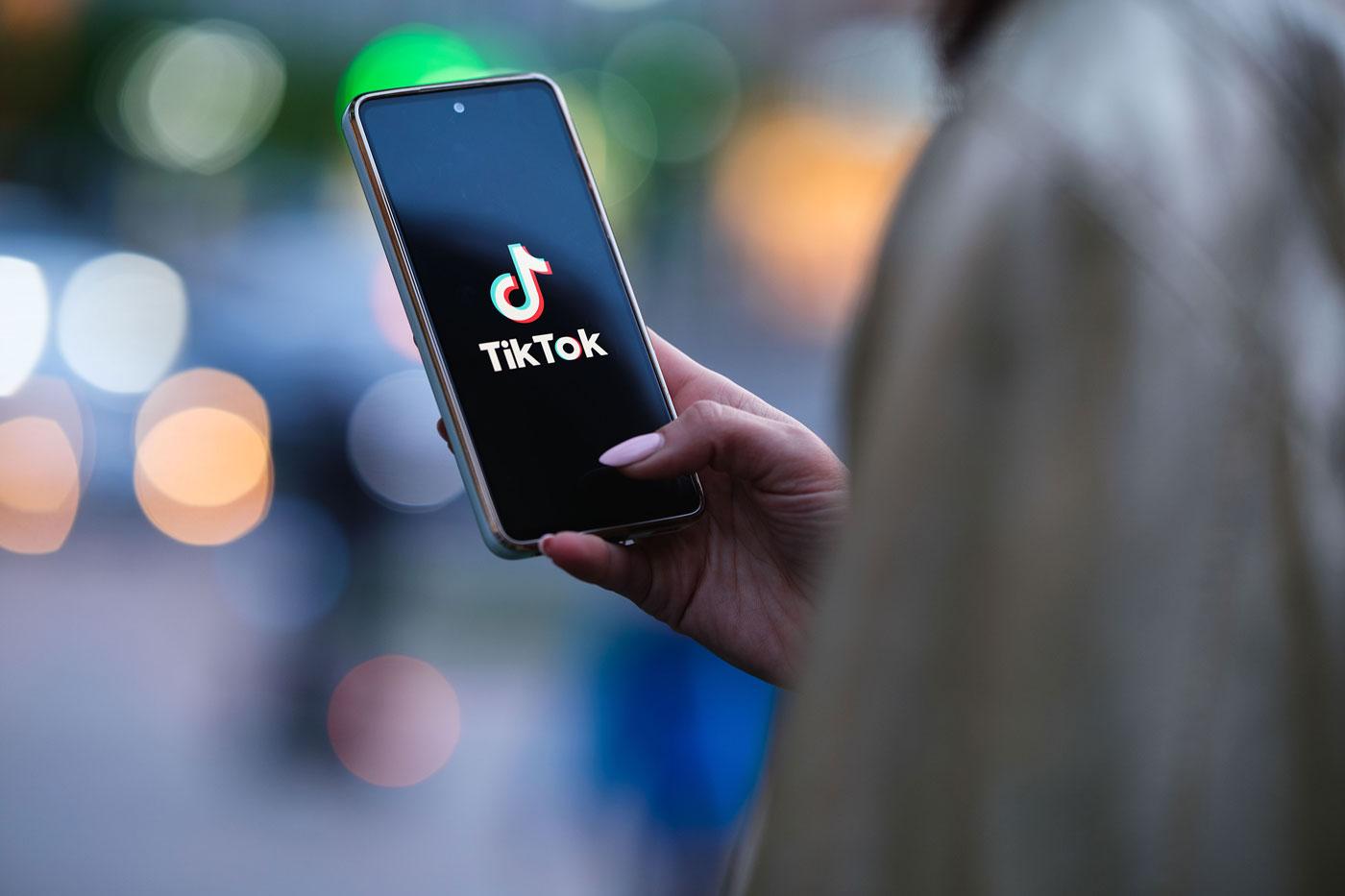
(Left) A receptionist works in the ByteDance office in Shanghai on June 27, 2023. (Right) A woman holds a phone displaying the TikTok app. (Pedro Pardo/AFP via Getty Images, Oleksii Pydsosonnii/The Epoch Times)
A ‘State Secret’ Algorithm
China has objected to selling TikTok since 2020, when President Donald Trump ordered ByteDance to divest the app because of national security risks. A potential acquisition from Texas-based Oracle fell apart. President Trump also issued an executive order to ban the app, but TikTok sued and got a court order blocking it on First Amendment grounds.
After President Biden took office in 2021, he replaced the ban with a Commerce Department investigation that is yet to produce a report. Meanwhile, Republican lawmakers have held hearings and kept pushing to address the national security concerns posed by the app.
In March 2023, the Chinese regime’s Ministry of Commerce spokesperson strongly objected to any sale, citing a technology export issue. Recently, Chinese authorities also signaled to ByteDance that Beijing would choose a ban in the United States over a forced sale, according to The Wall Street Journal. Reuters reported that the CCP took a similar stance in 2020.
All this suggests that the CCP treats the algorithm like a “state secret,” according to Peter Schweizer, president of the Government Accountability Institute, a think tank.
“To me, that’s indicative of what their true interests are here. It’s not to provide a platform for commercial activity; it is to create a platform as an influence operation,” he recently told The Epoch Times.
‘Cognitive Warfare’
Mr. Schweizer said he believes that TikTok is part of Beijing’s “cognitive warfare” to “dumb down the West.”
“Our kids are getting cotton candy from ByteDance; children in China are getting spinach,” he said, referring to the two different versions of the app.
Cognitive warfare is a type of psychological warfare, which is one of the “three warfares” doctrine underpinning the CCP’s sprawling campaign to infiltrate and undermine the West.

Chinese People’s Liberation Army soldiers assemble during military training in northwestern China’s Xinjiang region, on Jan. 4, 2021. (STR/AFP via Getty Images)
A leading military theorist at an elite defense university in China defined “cognitive space” as “the intangible dimension in which feelings, willpower, beliefs, and values exist.”
In a 2017 article published in the official newspaper for the CCP’s military, he wrote, “The target of cognitive warfare is people; the battlefield is the entire human society.”
The author advocated using “information and popular spiritual and cultural products as weapons” to “directly interfere or control the enemies’ brains,” inflict mental harm, and even cause them to take action against their own interests, such as surrender or suicide.
In addition, Chinese scholars found in a state-funded research project that emotional content online can be leveraged very effectively for propaganda purposes.
The authors said that emotional content can “lead the audience to have the illusion of ‘independent thinking’ and attribute irrational emotions to ‘righteous indignation’ or ‘empathy,’ intensifying value confusions.”
Mr. Schweizer said TikTok, being an emotional platform for young people, is a perfect medium for the CCP’s propaganda.
“The propaganda says, ‘Once they cross that line and think they own that feeling, then we’ve got them because now we can steer them in the direction that they want to go,’” he said.
“And they are already doing that.”
TikTok’s Pressure Campaign
TikTok’s pressure campaign against the bill that forces Chinese divestment reveals the app’s mobilizing power.
In early March, TikTok encouraged its users to lobby against the legislation. Many users were notified with a popup message upon opening the app: “Take action: Speak up against a TikTok shutdown.” Users were then able to enter their zip code to locate the phone numbers of their congressional representatives.
Key TikTok bill sponsors received “thousands” of phone calls. Children called in and threatened suicide if the bill passed, according to Rep. Chip Roy (R-Texas).
After the House overwhelmingly passed the legislation in a bipartisan 352–65 vote in mid-March, senators began receiving the same calls.
One alarming message was left for Sen. Thom Tillis (R-N.C.), which he posted on social media.
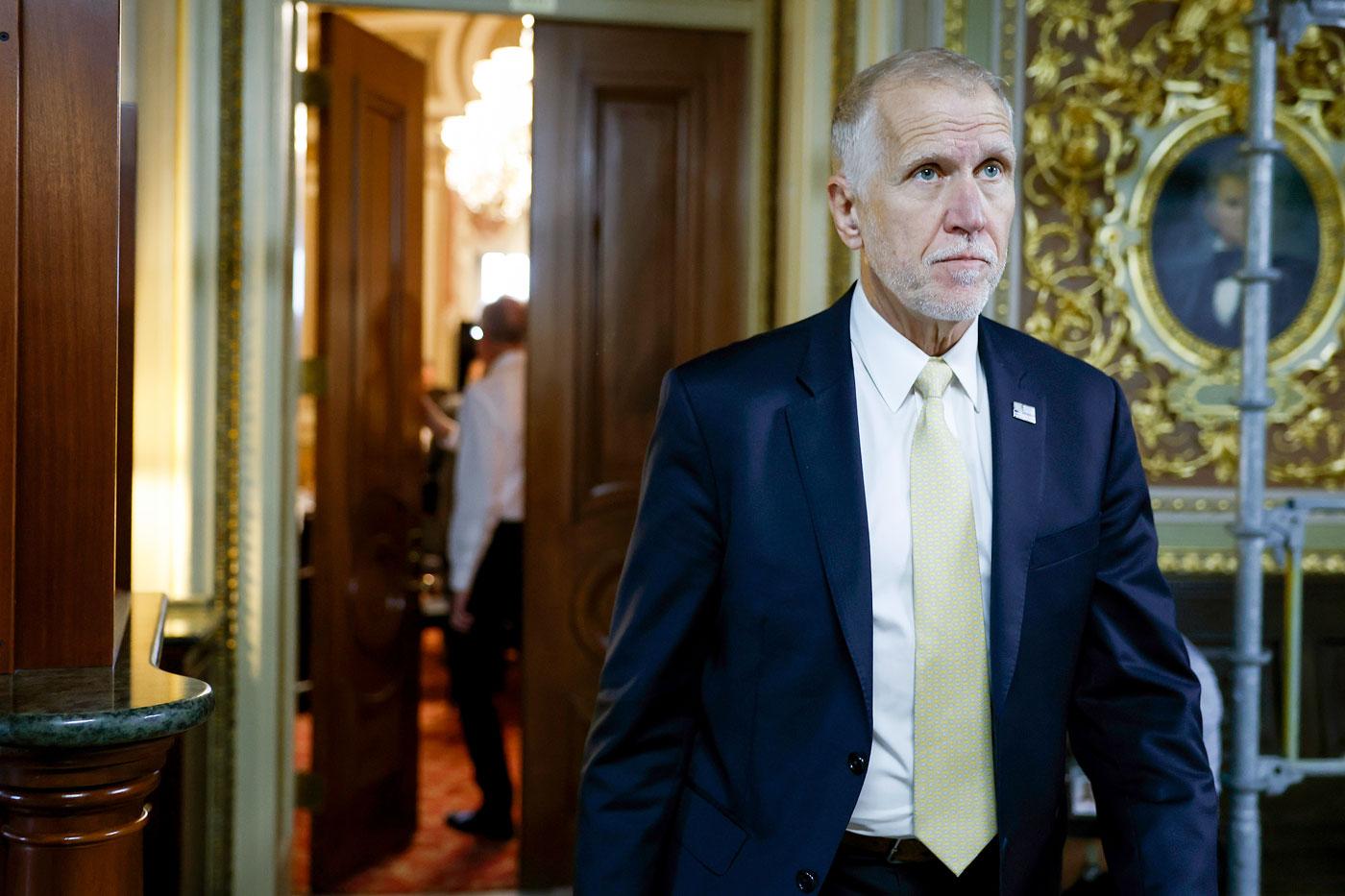
Sen. Thom Tillis (R-N.C.) departs from a luncheon with Senate Republicans at the U.S. Capitol on June 1, 2023. (Anna Moneymaker/Getty Images)
“Okay, listen, if you ban TikTok, I will find you and shoot you,“ one female caller says as others giggle in the background. “That’s people’s job, and that’s my only entertainment. And people make money off there, too, you know. I’m trying to get rich like that. Anyways, I’ll shoot you and find you and cut you into pieces. Bye!”
Lawmakers have said the bill is not a ban on TikTok but a measure to protect Americans from apps with algorithms and data collection controlled by foreign adversaries. They note that TikTok can continue to operate if it cuts ties with its China-based parent company.
TikTok says otherwise. “This bill is an outright ban of TikTok, no matter how much the authors try to disguise it,” a TikTok spokesperson told The Epoch Times in an email last month.
“This legislation will trample the First Amendment rights of 170 million Americans and deprive 5 million small businesses of a platform they rely on to grow and create jobs.”
Meanwhile, TikTok has also carried out an all-out public relations campaign in Washington.
The company has put up big-screen advertisements at Union Station and Reagan Airport stating, “TikTok contributed $24B to the U.S. economy in 2023 alone.” The fine print quotes Oxford Economics as the source. What it doesn’t say is that the study was commissioned by TikTok.
According to a senior legislative aide, TikTok has sought to join congressional hearings so that its CEO can be seated next to executives from social media platforms Meta and X. This way, Americans might view TikTok as just another California-based social media company.
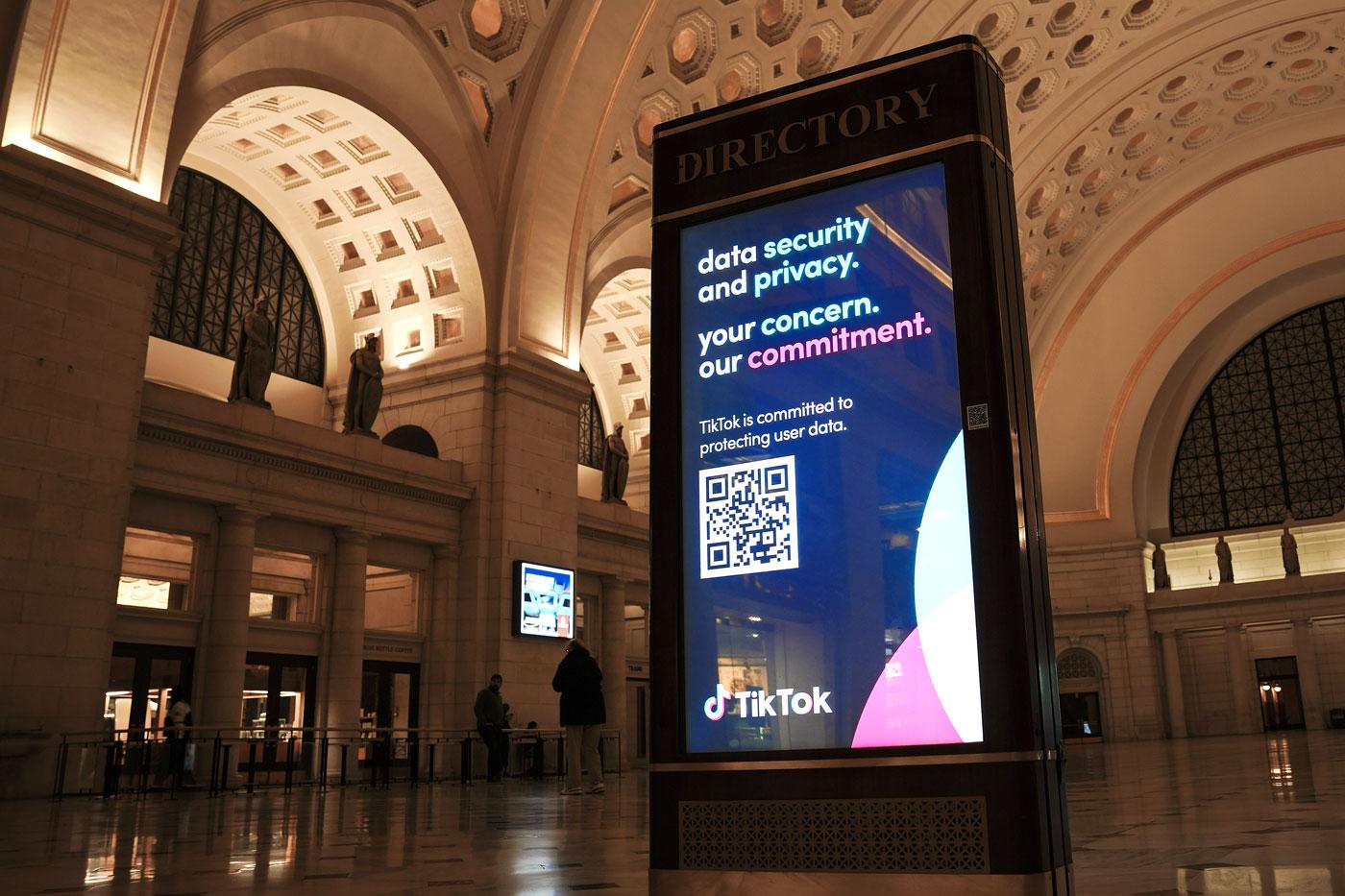
A TikTok advertisement at the Union Station train stop in Washington on March 31, 2023. (Madalina Vasiliu/The Epoch Times)
Just Another Social Media Platform?
Another incident reveals TikTok as more than just an entertainment and e-commerce platform for China.
On April 17, Politico reported that officials from the Chinese Embassy met with congressional staffers to lobby against the TikTok bill.
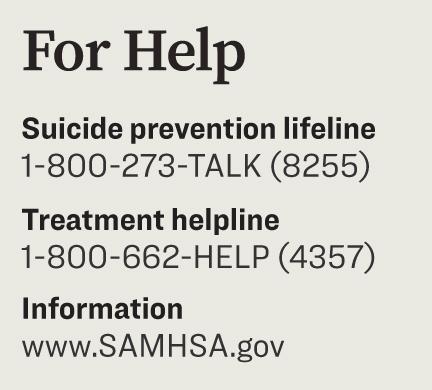
Senate Intelligence Committee leaders told The Epoch Times that the Chinese Embassy’s efforts show that the CCP considers TikTok a “strategic asset” for influence operations in the United States.
According to the Pew Research Center, about four in 10 TikTok users in the United States regularly get their news on the platform, and the vast majority are between 18 and 29 years old.
Mr. Cain said TikTok has seeped into the United States’ communications infrastructure, which is usually heavily guarded in democratic countries to restrict foreign ownership.
“TikTok essentially serves the same purpose as CNN or Fox News,” he said. “Imagine the chaos that would happen if the Chinese government controlled CNN.”
He said the TikTok bill simply updates existing laws to extend the regulation of the communications infrastructure to social media. Yet, by appearing like just another U.S. social media platform, TikTok can capitalize on xenophobic, anti-Asian, or freedom of speech arguments against the bill.
But leaders of foreign adversaries shouldn’t have unrestricted First Amendment rights in the United States, Mr. Cain said.
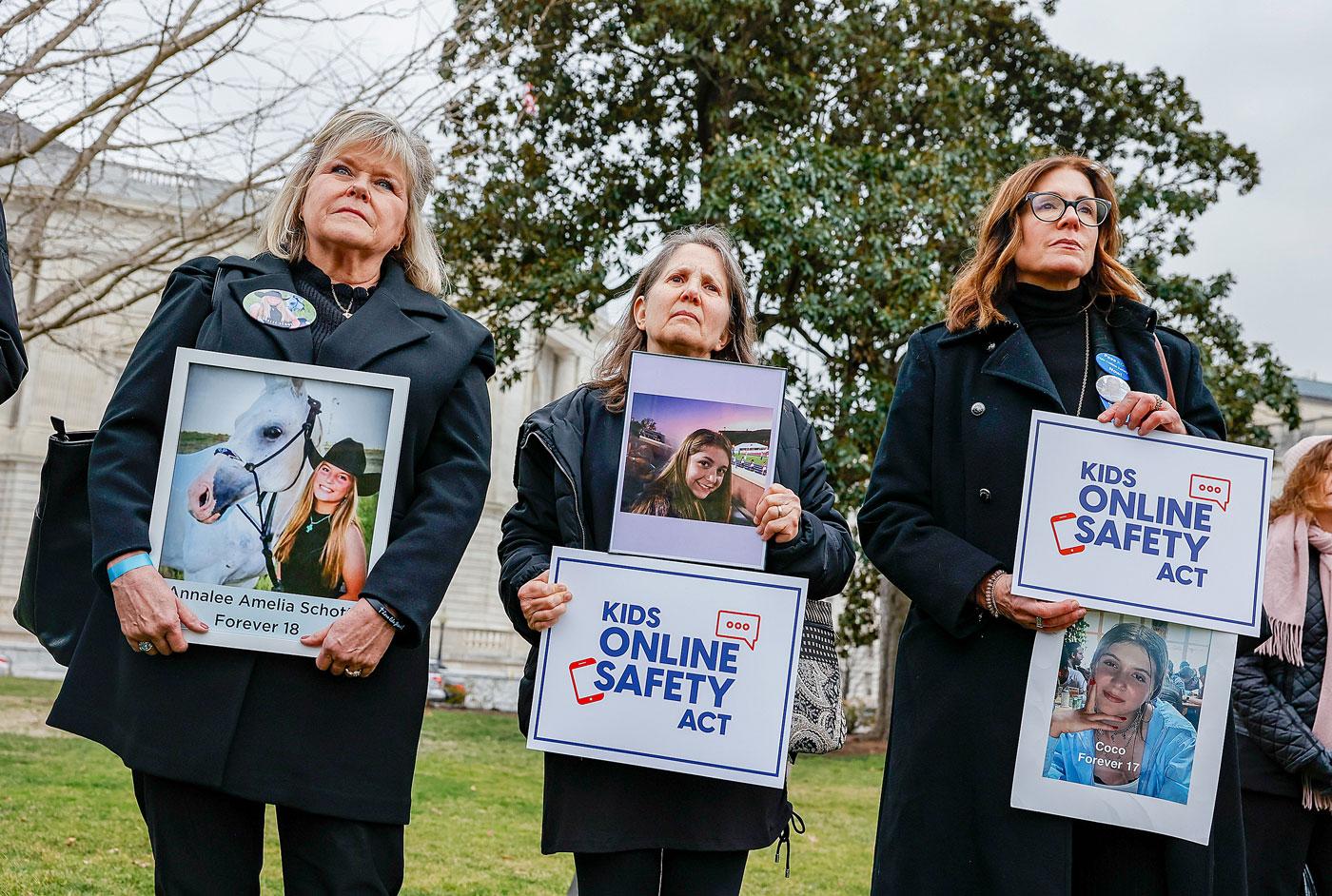
Lori Schott (L) holds her daughter Annalee’s picture at a rally in Washington, D.C., on Jan. 31, 2024. (Jemal Countess/Getty Images)
He said he thinks it’s only a matter of time before TikTok is sold or banned.
Indeed, that appears to be the case with the Senate expected to clear the House-passed bill that gives ByteDance one year to divest its ownership of TikTok or be banned.
“It is unfortunate that the House of Representatives is using the cover of important foreign and humanitarian assistance to once again jam through a ban bill that would trample the free speech rights of 170 million Americans,” TikTok stated on Sunday. It has also told its employees that it will sue on First Amendment grounds.
Meanwhile, Ms. Lori Schott is determined to tell Ms. Annalee Schott’s story to help more youth and their parents.
For Help
National suicide prevention lifeline 1-800-273-TALK (8255)
Treatment helpline 1-800-662-HELP (4357)
Information www.SAMHSA.gov
Andrew Thornebrooke contributed to this report.




